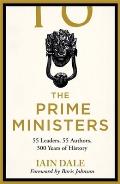“Hostilitys have commenced at Cambridge”?
These are two entries from the diary of the Rev. Ebenezer Parkman of Westboro.
Parkman really didn’t like conflict, so he hung back from political actions his parishioners and even his sons advocated. I recently traced his losing battle to keep people in town from committing to the Solemn League and Covenant boycott; that comes up here, too.
Naturally, Parkman was most uncomfortable with the idea of his farmworker, neighbors, son, and others marching off to confront the redcoats.
But the real story of these entries is how much misinformation and confusion the people of central Massachusetts were dealing with. The false rumor that the regulars had killed people in Cambridge on 1 September ended up reaching Westboro first as a false rumor that there was shooting on 2 September and “Some [victims] at least may be of Westborough.” That wasn’t completely refuted until the next day.
1774 September 2 (Friday). This morning was ushered in with Alarms from every Quarter, to get ready and run down to Boston or Cambridge. The Contents Magazine of Powder at Winter Hill had been carryed off — namely [550?] Barrells; by Treachery; etc. This is told as the Chief Affair.Westboro was using its meetinghouse as its militia armory, as Lexington would do in April 1775.
72 of our Neighbours marched from Gales (tis said) by break of Day; and others are continuely going. My young man [Asa Ware] goes armed, with them.
About 5 p.m. Grafton Company, nigh 80, under Capt. Golding, march by us.
N.B. Squire [Francis] Whipple here. Says he is ready to sign [the Solemn League and Covenant] etc.
It is a Day of peculiar Anxiety and Distress! Such as we have not had — Will the Lord graciously look upon us; and grant us Deliverance — for we would hope and trust in His Name! We send for Mrs. Spring and her two Children to be here with us, while her husband is gone with the People. Breck [the minister’s son] returned from Lancaster.
At Eve we have most sorrowful News that Hostilitys have commenced at Cambridge, and that Six of our people are killed; that probably Some at least may be of Westborough. Joshua Chamberlin stood next (as it is related) to one that was slain. We have many Vague accounts and indeed are left in uncertaintys about Every Thing that has occurred.
Sutton soldiers — about 250, pass along by us — but after midnight are returning by reason of a Contrary Report. Mr. Zech. Hicks stops here. Breck is employed in the night to cast Bulletts. A Watch at the Meeting House to guard the Town stock etc. Some Towns, we hear, have lost much of theirs, as Dedham, Wrentham etc.
1774 September 3 (Saturday). Capt. Benjamin Fay came here between 2 and 3 o’Clock in the morn in much Concern and knew not what to do. After Light and through most of the forenoon, vague uncertain Reports. Sutton men that had gone to Deacon Wood, came back to go down the Road again.It’s also notable that the Sutton minister Ebenezer Chaplin accompanied men on this militia alarm. He was much more politically active than Parkman, chosen for the 1779 convention to write a constitution for Massachusetts and the 1788 convention to consider the new U.S. Constitition.
My son Breck with provisions, Bread, Meat, etc., Coats, Blanket etc., for it was rainy, rides down towards Cambridge to relieve Asa Ware, Mr. Spring, and others who were unprovided.
About noon the Sutton Companys come back again and go home, Rev. [Ebenezer] Chaplin among them. So do the Grafton men.
Mr. Abraham Temple relates to me, that he, having been as far as to Cambridge and himself Seen many of the Transactions, that there were no Regulars there, no Artillery, no body Slain — but that Lt. Gov. [Thomas] Oliver, Messrs. [Samuel] Danforth, Joseph Lee, Col. [David] Phips (the high Sheriff) had resigned and promised that they would not act as Counsellors — that Mr. Samuel Winthrop computed there were about 7000 of the Country people had gathered into Cambridge on this Occasion — that it was probable, as he (Mr. Temple) conceived, that the Troubles would subside.
N.B. When the Sun run low, Our Company returned (consisting of Horse and Foot about 150). With them were my Son and my young man — all without any Evil Occurrance. To God be Praise and Glory! I Suppose Capt. [Jonathan] Maynard and those who were with him are returned also.
Chaplin also seems to have been a volatile man. In 1775 Isaiah Thomas declined to run some of his essays in the Massachusetts Spy, and the minister responded by preaching that the printer was an atheist and a Tory.
In 1791, the Rev. Mr. Chaplin locked up his daughter when she wanted to marry a popular young man. She died. The parish (which eventually became Millbury) dismissed Chaplin from their pulpit. Quite a change from seventeen years earlier, when they went off to possible war together.








